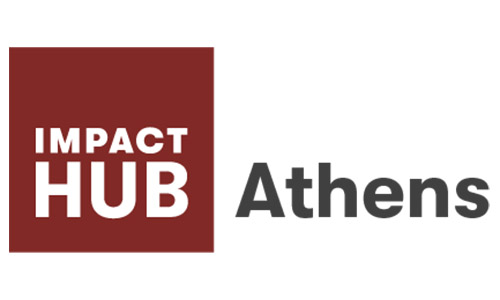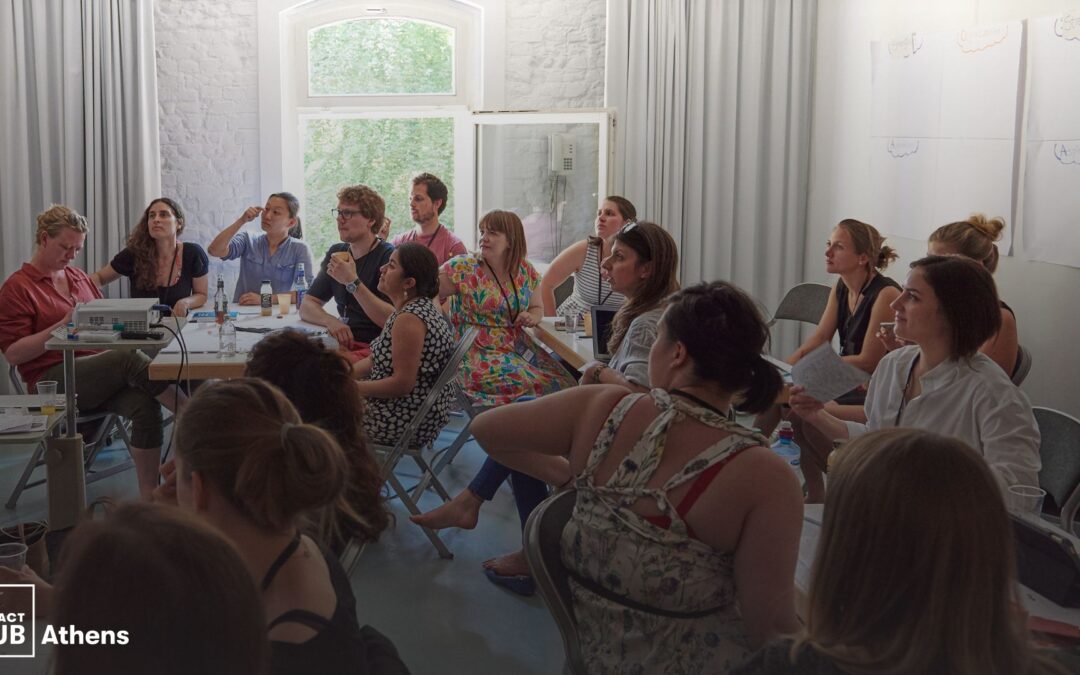In recent years, Greece has witnessed a growing interest in fostering female entrepreneurship, aiming to tap into the immense potential that women hold in driving economic growth and innovation. In fact, in 2022, Greece had one of the highest rates of women leading established businesses (10.2%). Globally, the established rate (percentage of adults aged 18–64 who are currently owner-managers of an established business) for women in 2022 was 5.5%, compared to 8.1% for men. However, despite progress in recognizing the importance of gender equality in entrepreneurship, significant disparities still persist between male and female entrepreneurs, especially when it comes to early-stage entrepreneurial activity where Greece was one of the countries with the lowest female early-stage activity (3.4% compared to 10.1% globally). Understanding these challenges and opportunities is crucial for creating an inclusive entrepreneurial ecosystem in Greece.
Current Landscape of Female Entrepreneurship
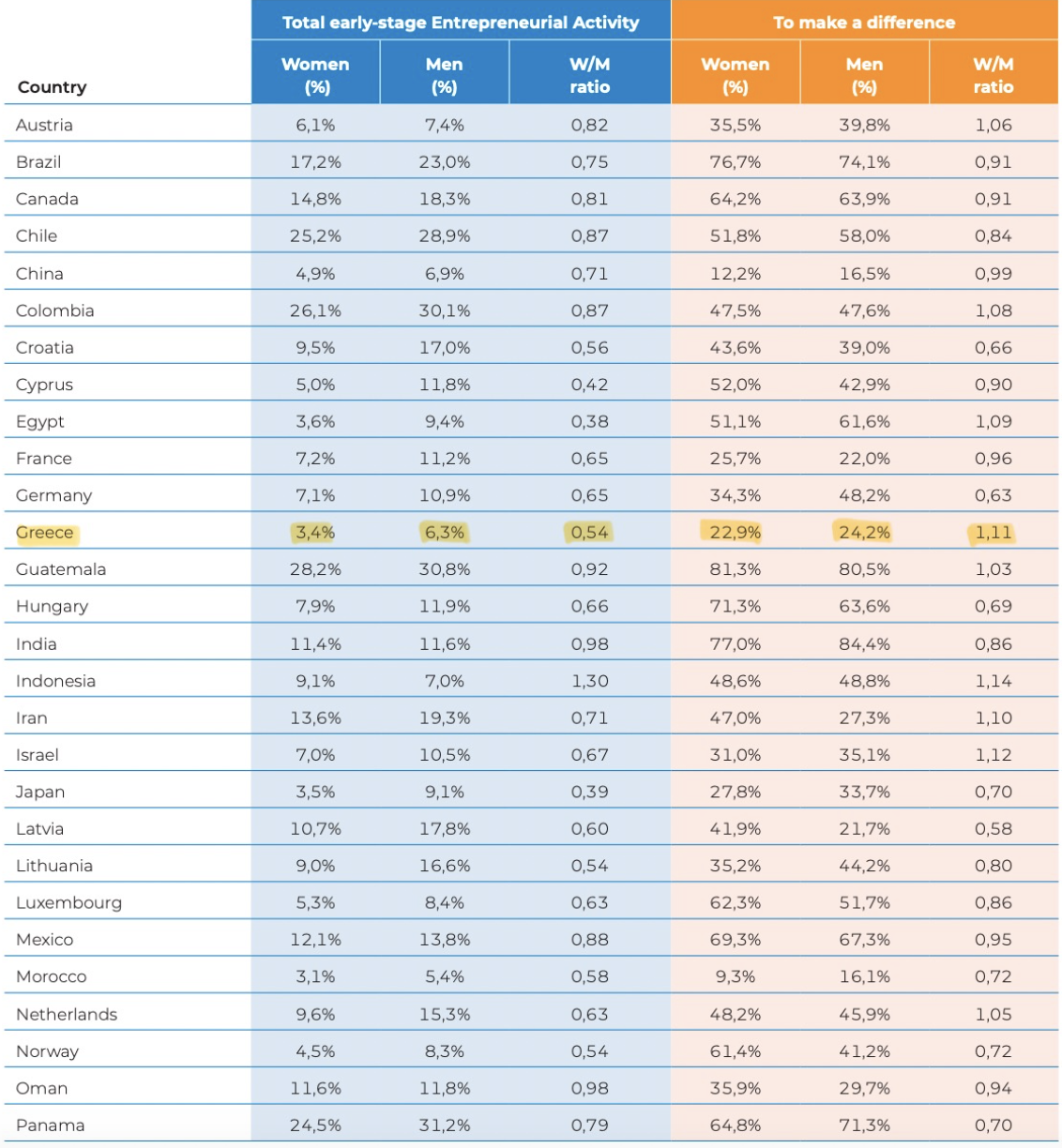 GEM 2022/23 Women’s Entrepreneurship Report: Challenging Bias and Stereotypes
GEM 2022/23 Women’s Entrepreneurship Report: Challenging Bias and Stereotypes
Statistics reveal a stark contrast in entrepreneurial activity between genders. Men seem to dominate early-stage entrepreneurial activities, with 6.3% engagement compared to women’s 3.4%. This discrepancy highlights the need to address barriers that hinder women’s participation in the entrepreneurial sphere. However, it’s promising to note that both genders share a common motivation to make a difference through entrepreneurship. Additionally, women show a higher inclination towards entrepreneurship for wealth accumulation, reflecting their aspirations for economic independence and financial stability.
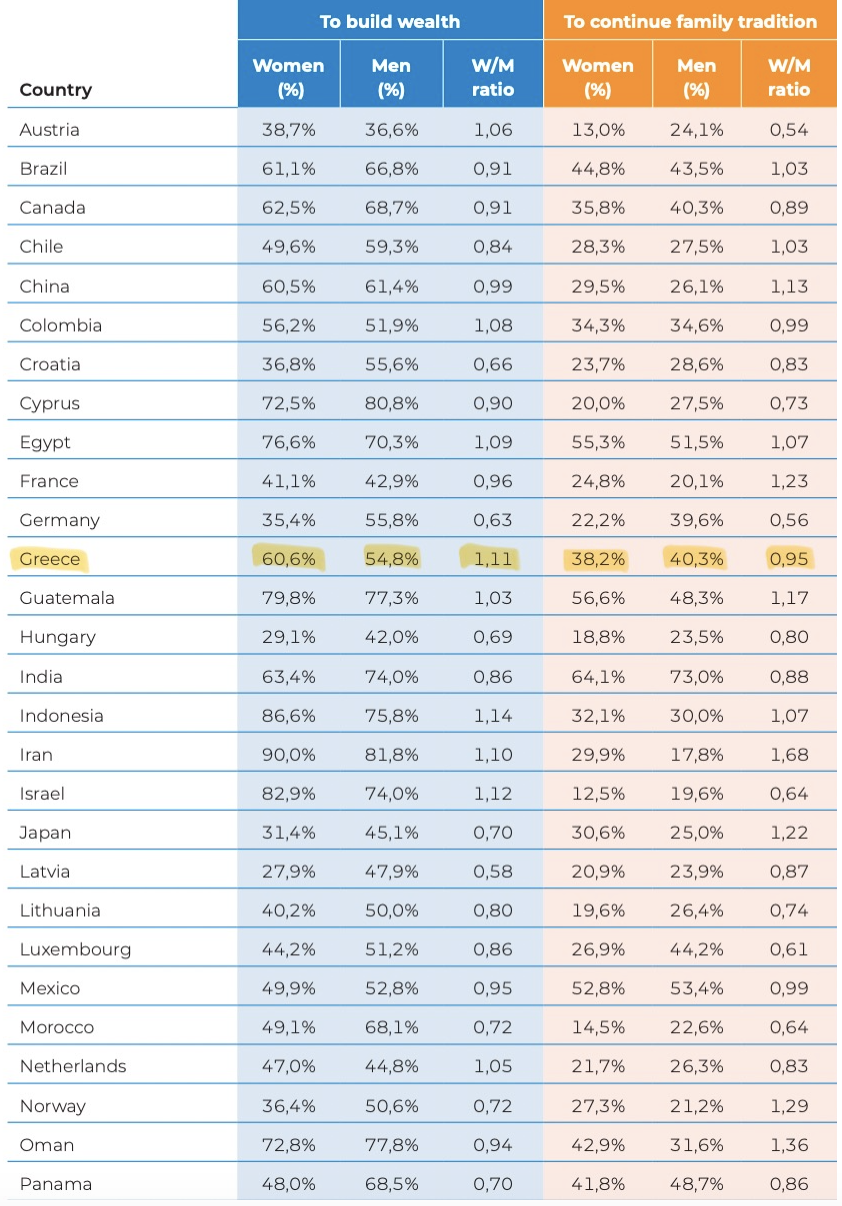 GEM 2022/23 Women’s Entrepreneurship Report: Challenging Bias and Stereotypes
GEM 2022/23 Women’s Entrepreneurship Report: Challenging Bias and Stereotypes
Barriers and Challenges
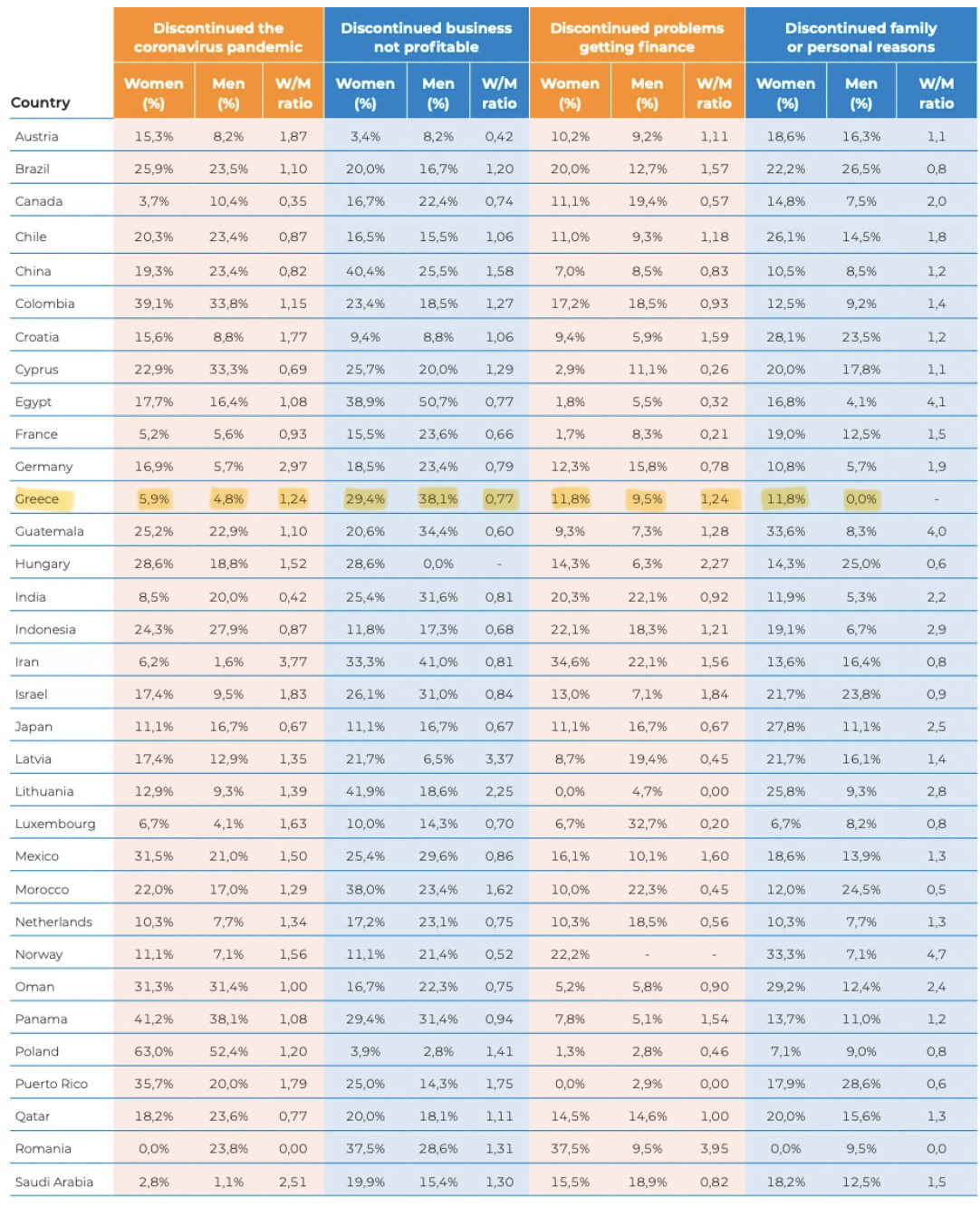 GEM 2022/23 Women’s Entrepreneurship Report: Challenging Bias and Stereotypes
GEM 2022/23 Women’s Entrepreneurship Report: Challenging Bias and Stereotypes
Several factors contribute to the gender gap in entrepreneurship in Greece. Women face unique challenges such as limited access to finance and lack of profitability, which often lead to business discontinuation. The COVID-19 pandemic exacerbated these challenges, with a higher percentage of women discontinuing their businesses due to its impact. Moreover, a significant portion of women discontinue business due to personal or family reasons, whereas men are more likely to exit for other opportunities. Moreover, women entrepreneurs are more likely to operate as solopreneurs, indicating a need for support in scaling their businesses and accessing resources for growth. Despite their potential, women’s businesses tend to be smaller in scale, with fewer employees compared to men-owned enterprises.
Opportunities for Growth
While challenges persist, there are significant opportunities to empower female entrepreneurship in Greece. Rural areas, in particular, offer a promising landscape for women’s entrepreneurship. The emphasis on multifunctionality and endogenous development has opened up new avenues for women to engage in para-agricultural or non-agricultural activities, contributing to local economies and preserving cultural heritage.Women’s cooperatives have emerged as a collective form of entrepreneurship in rural areas, showcasing the potential of collaborative efforts in driving economic and social development. Initiatives that support women in accessing training, funding, and mentorship can further bolster their entrepreneurial ventures and foster a culture of innovation and resilience.
Impact Hub Athens is dedicated to promoting gender equality and championing female entrepreneurship, making it a central focus across all our endeavors. We consistently track the gender distribution and gender balance across our members, employees & founders, along with the program participants through the global annual member survey. We also employ Key Performance Indicators (KPIs) for ongoing tracking for every program that is being delivered, which are monitored and reported upon throughout the cycle of the program. More than 80% of our team are women, as well as 4 out of 6 members of senior management. Participation in our programs is overall equal between males and females, but in some of our programs, such as Momentum which aimed to address the empowerment of female entrepreneurship, and Open Beehive, an entrepreneurial program for migrant women entrepreneurs, 100% of participants were women. Furthermore, our ongoing Impact Hub Academy program engages 60% of female founders, entrepreneurs and professionals, addressing the vast underrepresentation in the sector in Greece.
Moving Towards Gender Equality in Entrepreneurship
To address the gender gap in entrepreneurship, concerted efforts are needed from policymakers, business leaders, and society as a whole. Implementing gender-responsive policies, improving access to finance and markets, and promoting entrepreneurship education among women are critical steps in leveling the playing field. Furthermore, raising awareness about the importance of gender diversity in entrepreneurship and challenging gender stereotypes can create a more inclusive and supportive environment for female entrepreneurs to thrive. By harnessing the untapped potential of women in entrepreneurship, Greece can drive sustainable economic growth and foster a more equitable society. Empowering female entrepreneurship in Greece requires a holistic approach that addresses systemic barriers while capitalizing on the unique strengths and opportunities that women bring to the table. With the right support and enabling environment, women entrepreneurs can unleash their full potential and contribute to Greece’s prosperity and resilience in the years to come.


